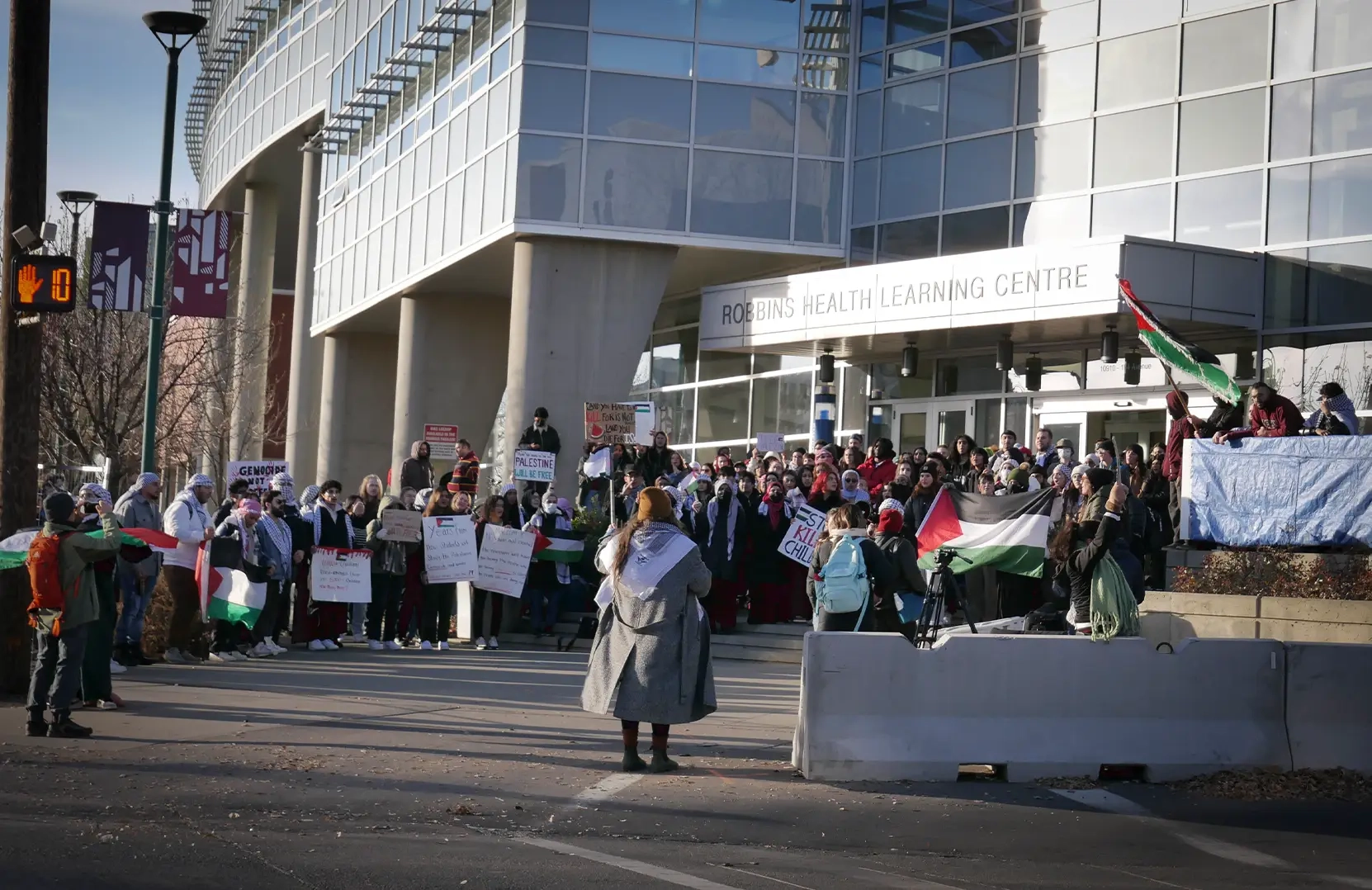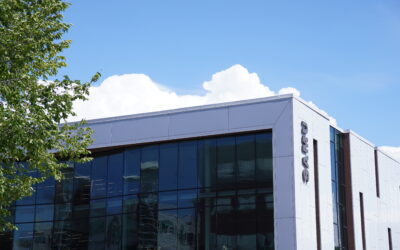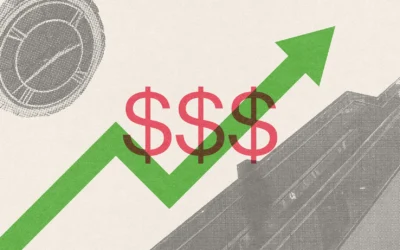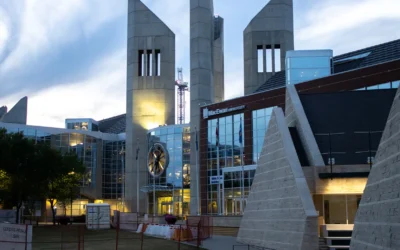While MacEwan University enthusiastically supports Ukraine, it remains silent on Israel-Palestine, leaving some students, faculty, and staff frustrated.
For six and a half weeks, Israel has wrought destruction onto Gaza in its response to the Oct 7 Hamas cross-border attack. The Israeli Defence Force (IDF), claiming it only attacks military targets, has destroyed schools, mosques, apartment complexes, hospitals, and refugee camps and cut off water and power. Recently, top Israeli officials have even called for the relocation of Gazans to other countries.
The Canadian government continues to back Israel with tepid calls of restraint despite NGOs calling Israeli violence war crimes and ethnic cleansing. Associate professor of Holocaust and genocide studies at Stockton University, Raz Segal, describes what Israel is doing as “a textbook case of genocide.”
MacEwan University has many international students and a large multicultural population. Jewish and Palestinian students are part of the student body, and these students, including their families, are directly and deeply affected by the violence.
During the past weeks, MacEwan students staged two on-campus protests, one on Oct. 17 and another on Nov. 9. MacEwan is a young university, and these are some of its first on-campus student protests. Joining global, national, and city protests, students are leading the way, making statements calling for a ceasefire and an end to the occupation.
MacEwan responded quickly to the Ukraine crisis. It took only one day for MacEwan to announce its solidarity with Ukraine after Russia’s attack.
Weapons, silence, and double standards
“I think our universities are silent about this because there are international students or even students that may support the apartheid state of Israel,” says Noor Zaaour, a MacEwan student who organized an Oct. 17 student demonstration.
“It puts them in a situation where they don’t want to make students uncomfortable,” she says, “but, if they don’t speak up about this, their silence is compliance. Their silence is allowing this genocide to go further.”
As per the independent Euro-Mediterranean Human Rights Monitor on Nov 22, the civilian death toll is 18,219, of which 7621 are children. 34,790 injured, 58,790 homes destroyed, and almost 1.7 million people displaced.
“The media is constantly promoting the idea that Palestinians are basically terrorists or not humans,” Zaarour says. “It’s a double standard.”
“It seems as though the West does not care and does not see the Palestinian people as human as they do for those in Ukraine,” she says.
MacEwan enthusiastically responded to the Ukraine crisis. The Ukrainian Resource and Development Centre (URDC) page proudly supports Ukraine and engages MacEwan University through its Ukraine Support Team.
“They’re just trying to avoid commenting,” she said, “but that’s not going to stop students like me from continuing to pressure them to speak up against this.”
Noor Zaarour, MacEwan student
MacEwan president and vice-chancellor Annette Trimbee’s message addressing the Ukraine conflict said that it was deeply concerning. She offered empathy to the Ukrainian community, academic colleges, students, staff, and everyone affected by the conflict. Trimbee acknowledged community requests for support and says that MacEwan will “step up” and “teach, research and convene dialogue that results in positive change.”
MacEwan’s Ukraine support is more than official pronouncements. The URDC created panels that sought to discuss important issues and topics in a timely manner to the unfolding conflict. For example, one panel discussed the prospect of the Russian occupation of Chornobyl and Zaporizhzhia Nuclear power plants.
The URDC news articles platform for faculty and students’ scholarly work and community engagement. It also offered six non-residential grants to support partner academics in Ukraine and has a donation program to support Ukrainian students. This was all part of MacEwan’s “Our Response to the War.”
MacEwan offers support services to students, faculty, and staff who are affected. The school also raised a Ukrainian flag on campus.
MacEwan is not alone in supporting the Ukraine cause. The U of A “Stand with Ukraine” web page proclaimed the university’s position with students, employees, and academic colleagues. It offered safety and support for its students and employees affected by the crisis. U of A President Bill Flanagan personally welcomed displaced Ukraine students and scholars who came to the university. The university stated school representatives reached out directly to support current students and staff affected by the war.”
The school also waived 2022-23 tuition fees for Ukraine Study Permit holders and provided funding support for living costs for all incoming and current Ukrainian students in need for the 2022-23 academic year. It established an emergency fund and helped collect donations.
U of A political scientist Laurie Adkin says the issue is problematic. It was straightforward and unquestioned that the university made a “We Stand with Ukraine” statement, but was silent about Palestine. “That needs to be explained,” she says.
“It needs to be problematized. It’s not obvious why that would be,” Adkin says. “There’s a terrible genocide taking place, and we’re all affected by it. Many of us expect our administration to recognize this.”
A MacEwan faculty member who spoke to the Griff, asked to remain anonymous. He saw no real benefit for the university if it took a position it would appease some but not others, he said.
Adkin says universities could turn to their experts to get around the issue of presidents and provosts who don’t feel qualified to comment on an issue.
“Go to Mojtaba Mahdavi, who’s the chair in Middle East and Islamic Studies, and to somebody who’s in the Jewish Religion and Cultural Studies [U of A], and bring them together and say, ‘help us write a statement.’ They could do that,” Adkin says.
Fatmeh Kalouti of Free Palestine Edmonton says institutions claim they are non-political but support government narratives and agendas instead of leading impartial conversations based on their academic, historical, and contextual knowledge.
“I think we have a responsibility as people to uphold justice and equity in any way that our government gets involved.” We support oppression through things like weapons sales, she says. “We have a direct hand in genocide.”
In the Report on the Export of Military Goods, Global Affairs Canada reported that Canada exported just over $21.6 million CAD worth of military goods and technology in 2022. The same report outlines Canada’s policy on exporting and brokering military items and warrants the quote in full:
“As of September 2019, under the Export and Import Permits Act (EIPA), the Minister of Foreign Affairs must deny exports and brokering permit applications for military goods and technology if there is a substantial risk that the items would undermine peace and security, or could be used to commit or facilitate serious violations of international humanitarian and human rights laws, acts constituting an offence under international conventions relating to terrorism or organized crime, serious acts of gender-based violence or serious acts of violence against women and children.”
Global News reported that Canada deployed a small team of Canadian Special Operations Forces Command (CANSOFCOM) troops, which included the elite special forces unit Joint Task Force 2 (JTF2) to Israel. Retired Maj.-Gen.l Denis Thompson, who is a former CANSOFCOM commander, told Global that CANSOFCOM and the IDF have a “close relationship.”
Canada provides active support for a state which was formed as a settler-colonial state and has carried out incremental genocide for decades, Adkin says.
Global sympathy poured into Ukraine since the invasion. Of the total deaths in the Ukraine-Russia conflict since the invasion, child deaths represent 6 per cent. In Gaza, they represent approximately a staggering 42 per cent.
The email and student walkout
On Nov. 9, MacEwan students staged a walkout and protest that occurred outside the Robbins Learning Centre. The Griff obtained an email from Craig Monk to MacEwan staff alerting and cautioning them about the student walkout and protest. It raised questions as to why it framed students as potentially disruptive and violent.
Craig Monk and Annette Trimbee were not available for an interview but provided email responses to our questions.
The response broadly emphasizes MacEwan’s commitment to academic values such as freedom of expression and assembly. That its campus is a safe place, free from harassment and violence, and that support is available for all students, faculty, and staff. It does not, however, answer the questions.
The Griff is providing both questions and answers.
The Griff: Why has MacEwan not put out any messaging about Palestine-Israel but vocally supports Ukraine? Does MacEwan plan on making any statement?
MacEwan: As a university, we stand firmly against hatred and violence in any form. Every day, discussions take place in our classrooms and hallways about current global events, with individuals freely expressing a diversity of views and opinions. Freedom of expression and opportunity to explore diverse, and sometimes, divergent views are central to the purpose and value of post-secondary institutions.
The Griff: Have MacEwan faculty/staff been instructed to not comment on the issue of Palestine? Are faculty/staff free to comment on Palestine-Israel?
MacEwan: As a post-secondary institution, we value academic freedom and freedom of thought, belief, opinion and expression. We do not tolerate any form of violence, threats, abuse, discrimination, targeting of specific groups or individuals, racism or harassment on our campus. We work with the university community to ensure the safety and security of all our students, faculty and staff.
The Griff: Why did MacEwan warn staff about demonstrations occurring but not warn students of potential harm/disruption?
McEwan: A notification was sent via the Safe@MacEwan app that morning, indicating that MacEwan officials were aware of the plans for a demonstration and reinforcing our commitment to the safety and security of students and staff.
The Griff: In his email to staff, why did Monk frame the student demonstration as potentially harmful/violent?
MacEwan: Our understanding of the situation was that there was the possibility for disruption to members of the campus community. Given that there is very little history with this kind of situation at MacEwan, it was our belief that the proper course of action was to provide information in advance of the event.
The Griff: Why is MacEwan not offering support for Jewish and Palestinian students, faculty, and community?
MacEwan: We pride ourselves on the fact that MacEwan is an open and welcoming community. We respect human rights, celebrate diversity and embrace equity and inclusion. There are wellness and psychological supports that are available to all students, faculty and staff.
The Griff: Does the URDC want to comment?
MacEwan: If you want to contact the URDC, they can be reached via email at urdc@macewan.ca
The Griff: We are reporting on Craig Monk’s Nov 9 email and Annette Trimbee’s Ukraine statement. Would they like to comment?
MacEwan: These responses shall serve as sufficient comment.
Asked to comment on MacEwan’s Ukraine and Israel-Palestine positions, the Student Association for MacEwan University (SAMU) Executive, Gabriel Ambutong, provided a statement saying that SAMU does not have a position “relative to the university’s response,” and does not plan to adopt one. The SAMU statement affirmed student funding as its basis for advocacy and is “relevant to students and responsive to their needs.”
SAMU said that it did not receive requests for support from MacEwan students relative to this issue.
Noor Zaarour and other students emailed MacEwan’s President and other MacEwan offices, and they protested [on Oct. 17]. They have not received a response.
“They’re just trying to avoid commenting,” she said, “but that’s not going to stop students like me from continuing to pressure them to speak up against this.”
A Nov. 17 SAMU Instagram statement said, “We’re with MacEwan students.” It is unclear if the post is referring to the current Israel-Palestine crisis.
The University of Alberta Students Union (UASU) released a statement on Nov 20 addressing the Israel-Palestine crisis, denouncing harassment and discrimination and affirming students’ rights to express themselves peacefully and safely.
The Griff spoke with five MacEwan faculty members, all of whom asked to have their names withheld for fear of retribution. They all said that they were concerned about MacEwan’s silence and empathized with the school’s Palestinian and Jewish students.
Indeed, across all sectors, more and more people have been fired for expressing dissenting views about Israel-Palestine.
“Do the paper. Do the report. Do the midterm. Do the final. How are we supposed to expect them to just go on day to day?”
Alix Lamothe, MacEwan student and president of the Indigenous Students Club
Alix Lamothe, president of the Indigenous Students Club, wonders where the MacEwan support services are for Palestinian students who have lost generations of their family members. “I know students who have lost multiple family members, but they’re expected to just continue with their studies,” she says. “Do the paper. Do the report. Do the midterm. Do the final. How are we supposed to expect them to just go on day to day?”
MacEwan should show support for their Palestinian and Jewish students, Lamothe says. “Understand, convey empathy for what they’re going through. They’re not robots.”
Free Palestine’s Fatmeh Kalouti said, “These institutions need to realize they are only performative. Decolonization is not just an academic theory that we debate in the classroom.”
“Decolonization means we support indigenous people, their right to exist, and causes in any type of movement for freedom, liberation, and justice.”
Laurie Adkin said because universities have made statements on global affairs before, such as the Syrian refugee crisis and the Ukraine war, that opens up the question, “why some and not others? What principles are you going by? Be consistent.”
“Do some lives matter more than others? This is the question we can legitimately ask,” she said.
When asked to comment on Monk’s staff email, Lamothe said that she was heartbroken about its language. “Telling staff and people to immediately call 911 feels like they’re just escalating the situation. They talk about feeling unsafe, about elements of hatred or violence; I never saw that for a second.”
“There’s a terrible genocide taking place, and we’re all affected by it. Many of us expect our administration to recognize this.”
Laurie Adkin, U of A political scientist
“Not one minute was I was scared for my safety. We were just asking for a ceasefire and for the people that represent us, also [for] the institution that we pay to be at, to have our backs,” Lamothe said.
“Empathy and understanding are so incredibly important. That our vice-president and Provost Craig Monk or Trimbee got facilities to cover up the McEwan sign so any pictures taken of the walkout and of the protest would not be connected to McEwan is…” Lamothe paused.
“That’s the simplest line of association and standing with us,” she said. “And they didn’t even do that.”
If you have any information for this story or information for another story, please contact us in confidence via email at info@.
Featured photo depicts the Nov. 9 Palestine protest at MacEwan University





Thank you for your article. Very needed. One day Canadian universities such as MacEwan would be judged for their lack of action when the Federal government supported the genocide in Gaza. Peace.